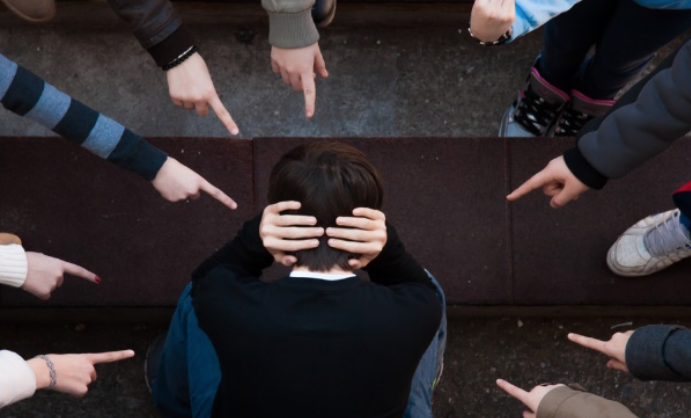CommentsJUST SAYIN’--As I navigate life as a queer disabled woman, I frequently think of Yale political scientist James C. Scott’s concept of the “weapons of the weak.”
Scott poses that while we usually think of resistance as overt, organized protests or rebellions, marginalized people often resist in more hidden ways: “foot-dragging, evasion, false compliance, pilfering, feigned ignorance, slander, and sabotage.”
Americans are plenty used to hearing arguments about identity. But one of the most common coping mechanisms of impacted people is simply to remain silent.
These methods of non-cooperation with the dominant group in society are effective when more obvious and organized forms of fighting back won’t work, particularly when they would be met with violence.
The first time I thought of the weapons of the weak in relation to my own life was about a year ago. I was reading a sociology book to prepare for a major exam for my PhD program.
A man at my table saw the book and decided to chat me up about it. He confessed he never studied sociology, and then proceeded to attempt to teach me something about it, saying something inaccurate and racist about Asians in the process.
I am not a race scholar, but between me and this guy, I was the expert. I have a bachelor’s in East Asian Studies, and I spent a few years teaching sociology courses on race. I tried to push back, gently telling him he was incorrect, without calling him racist.
I tried twice. He doubled down. I could see I wasn’t going to be heard. He kept going on and on, since he thought I clearly needed some instruction on the matter (the technical term for this is “mansplaining”). I thought of James C. Scott, and I put my nose in my book, and I pretended to read until the man ran out of steam.
Since then I’ve used this tactic a few times. I think it’s time to use it again, in another way.
I just met a man who seems nice and well-meaning, but he talks about women and LGBTQ people in a way that makes my skin crawl. He’s not overtly hateful, but he’s far too comfortable making jokes queer women might find unsettling.
I don’t know how to set him straight. Instead, I think when I see him at social gatherings, I’ll politely say hi and then avoid him.
In addition to being queer, disabled, and a woman, I also belong to several dominant groups in America: I am white, middle class, and educated.
I am certain that in my life, at various times, I have made people of color, working class people, and others feel uncomfortable in the same way those straight men did to me. I absolutely did not mean to, and yet I can name incidents when I did.
I am sure that, at times, the people I offended felt it was safer and more effective to avoid me than to correct me. Speaking up is risky, since I could have hurt them worse instead of listening.
When you belong to a dominant group, it’s hard to know what a marginalized group is thinking or feeling, or how you can become an effective ally to them. A major roadblock to change is thinking that your experience as a straight, white, middle class, etc. person informs you about the experiences of marginalized peoples. It doesn’t.
Understanding that and opening yourself up to being educated by people with less privilege than you are the first steps to change. Even better, instead of waiting for them to educate you, seek out resources to educate yourself as best you can.
(OtherWords columnist Jill Richardson is pursuing a PhD in sociology at the University of Wisconsin-Madison. Distributed by OtherWords.org.) Prepped for CityWatch by Linda Abrams.















